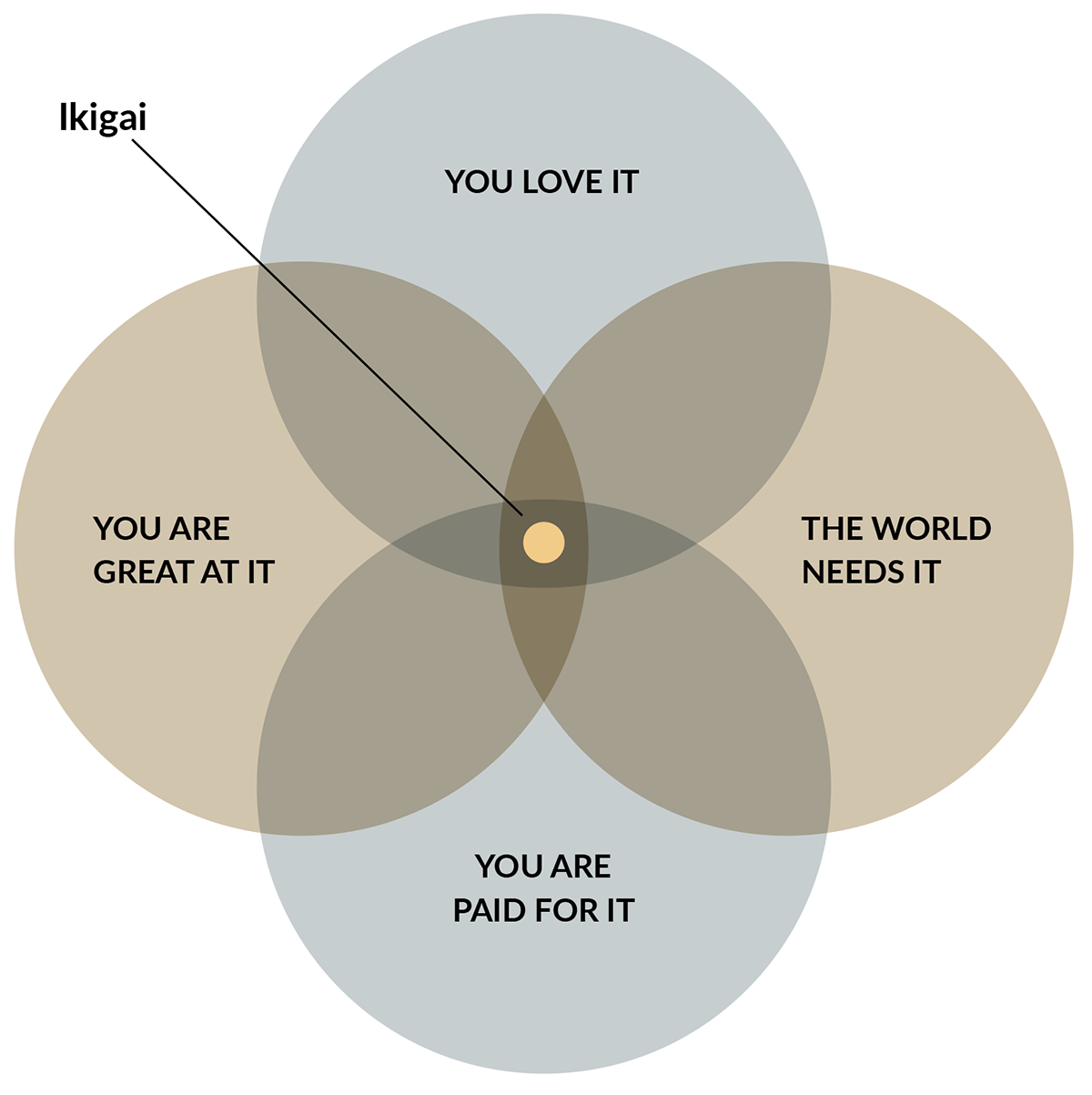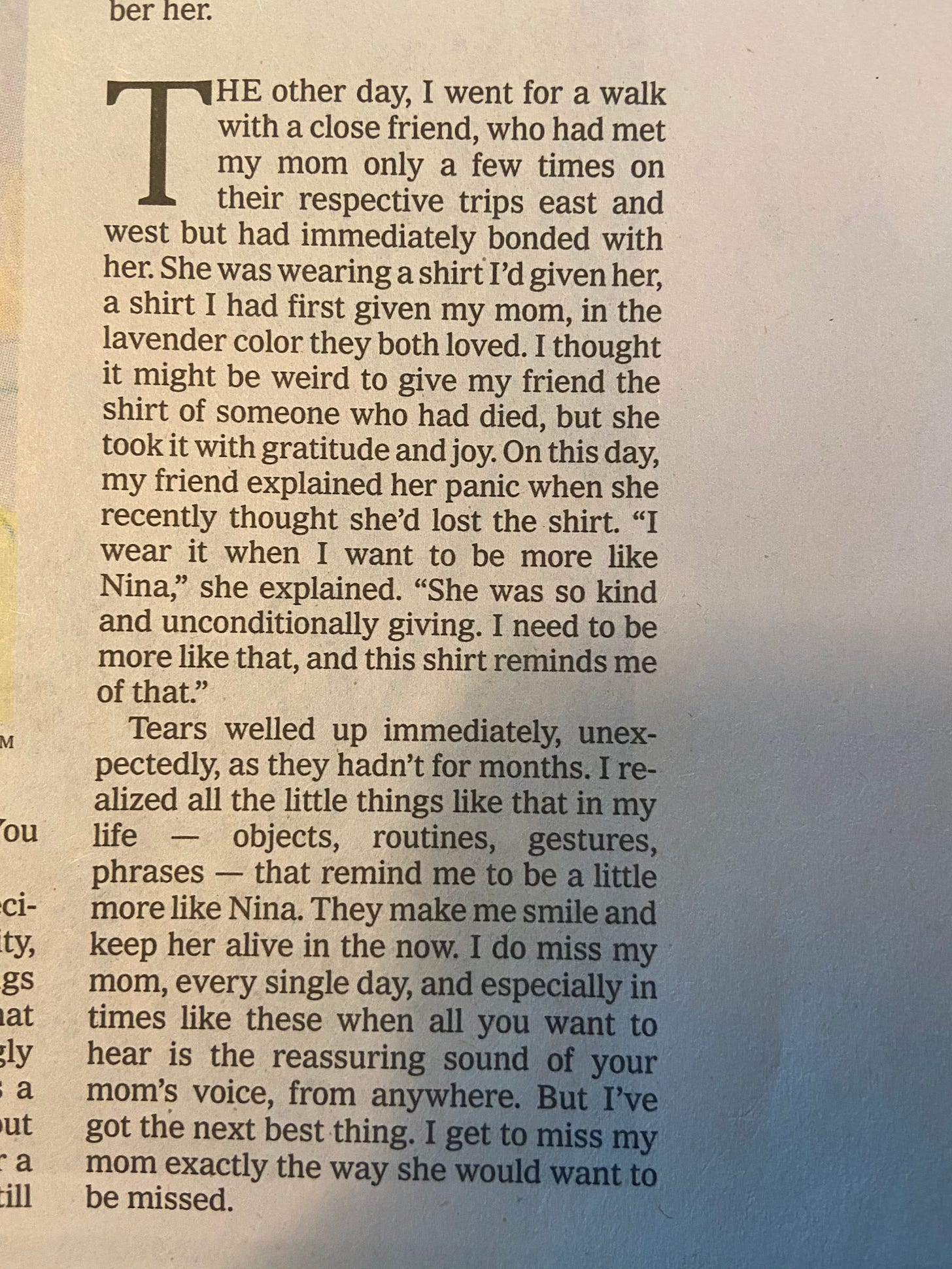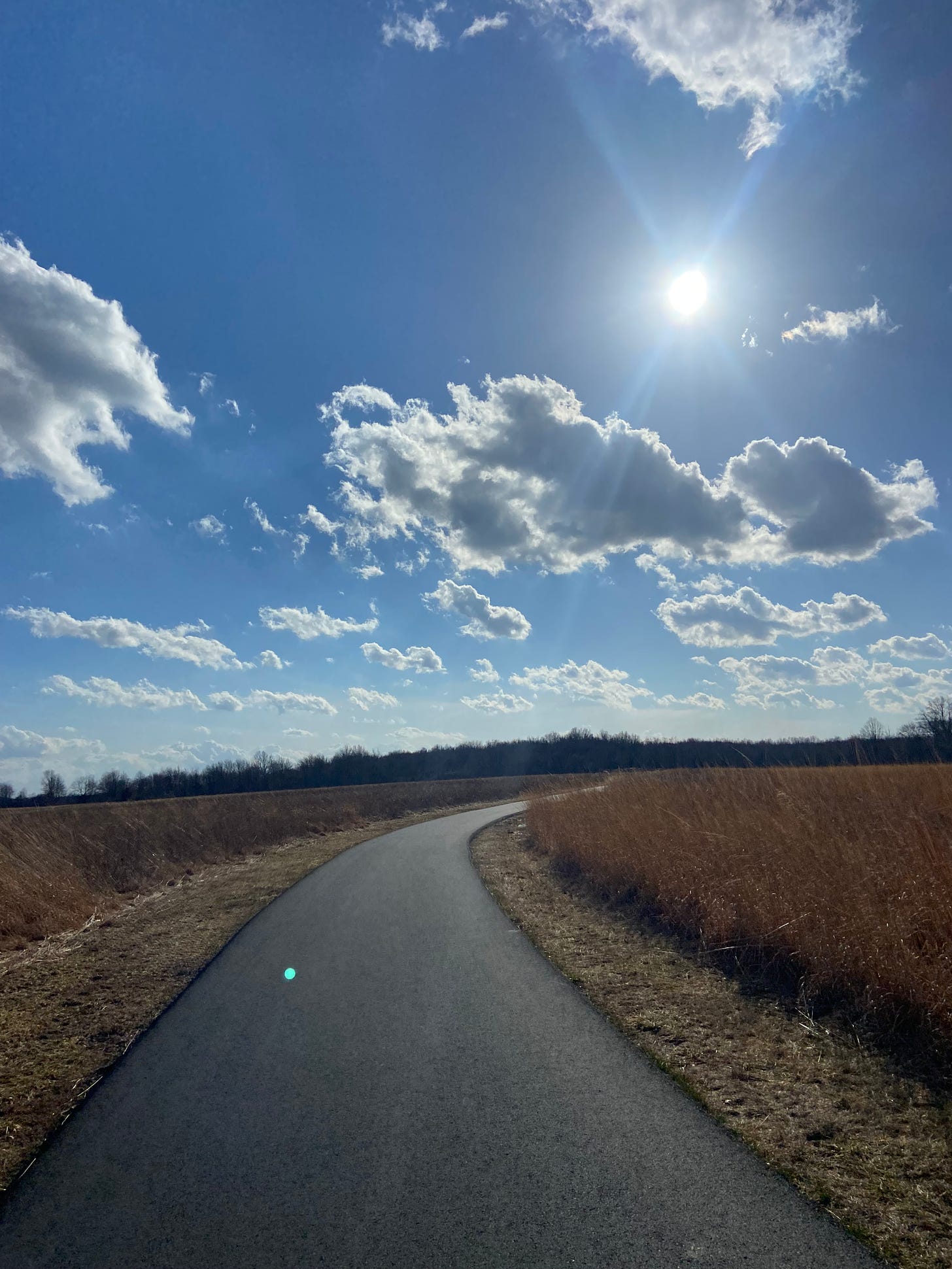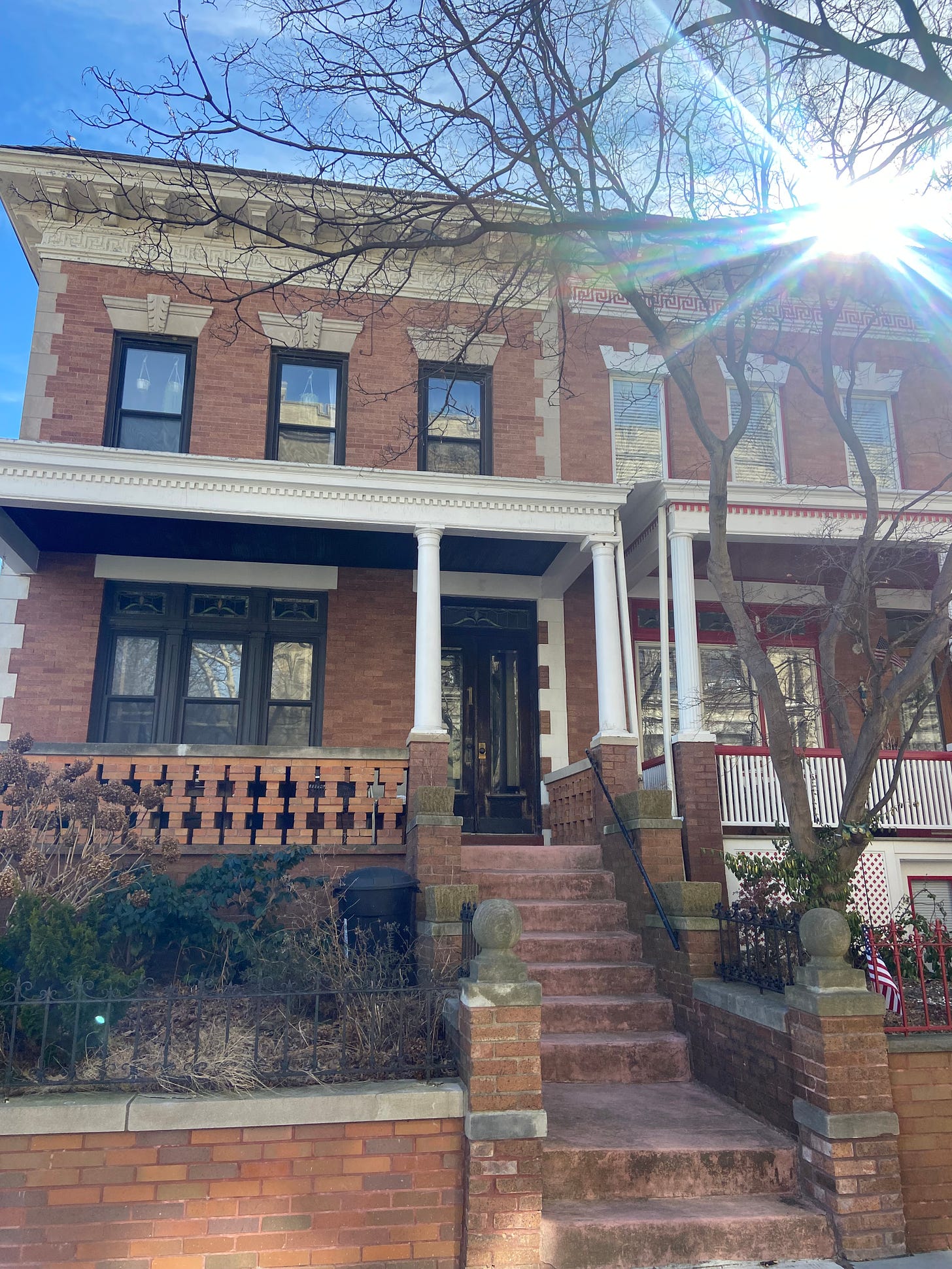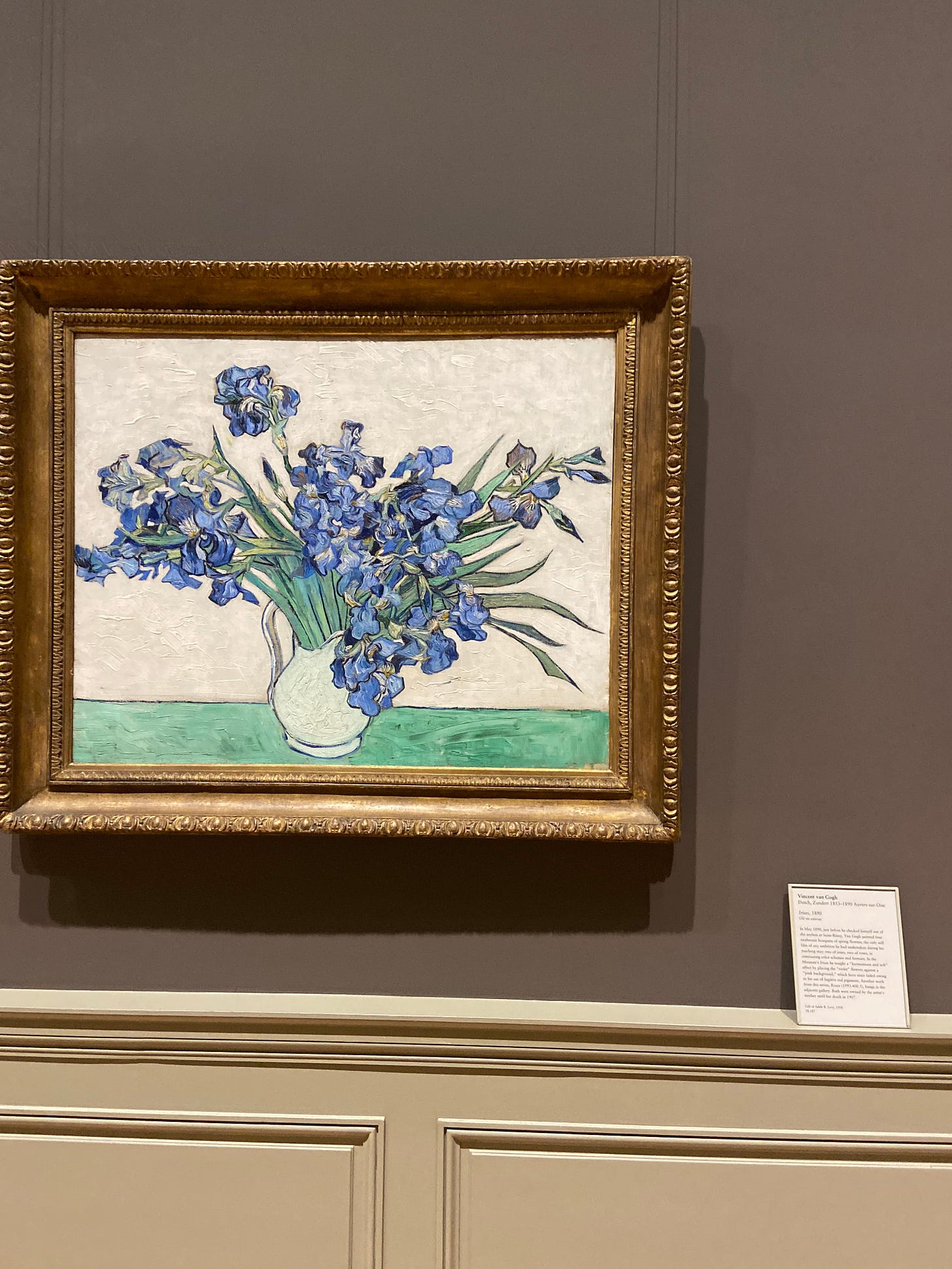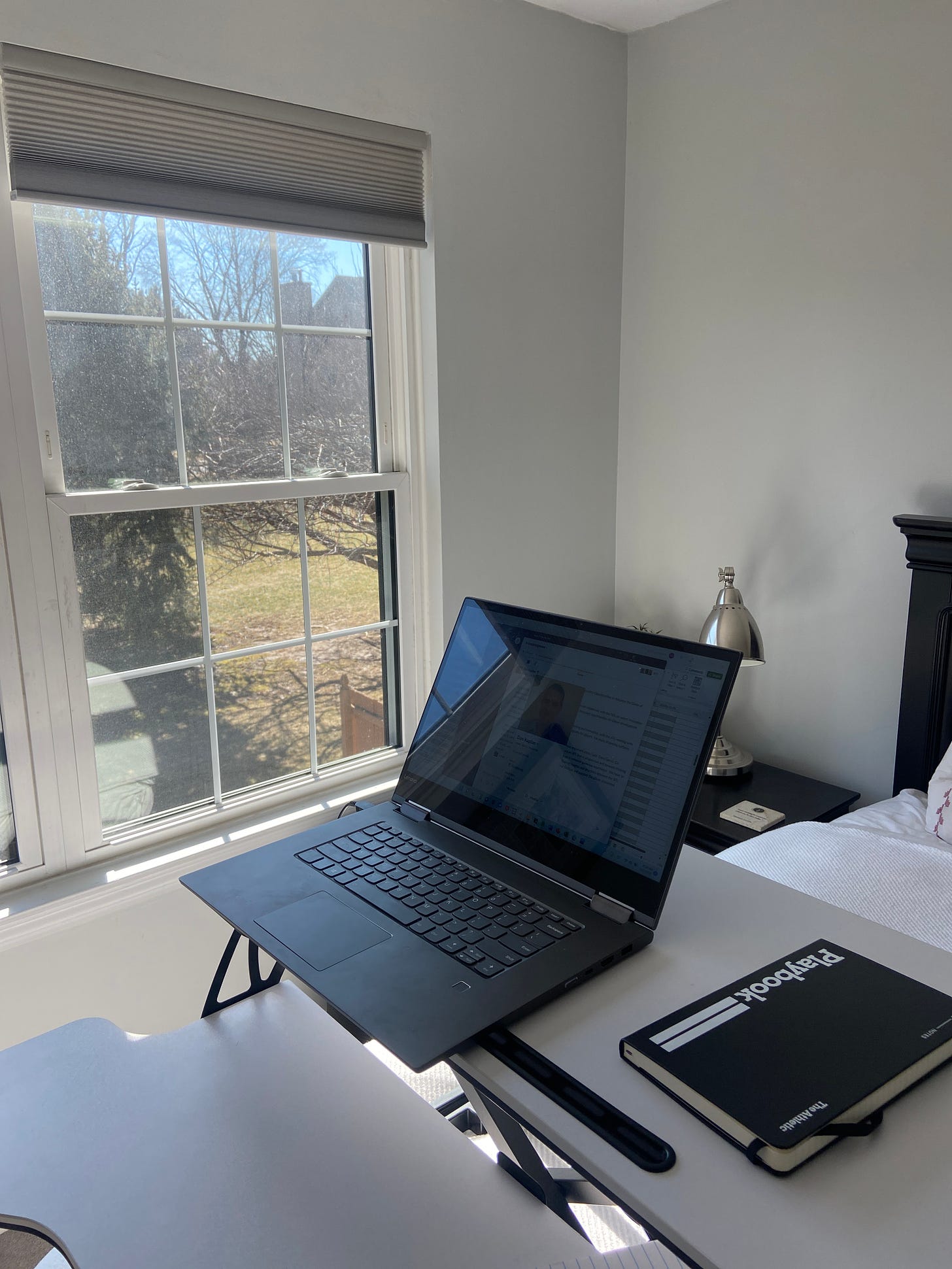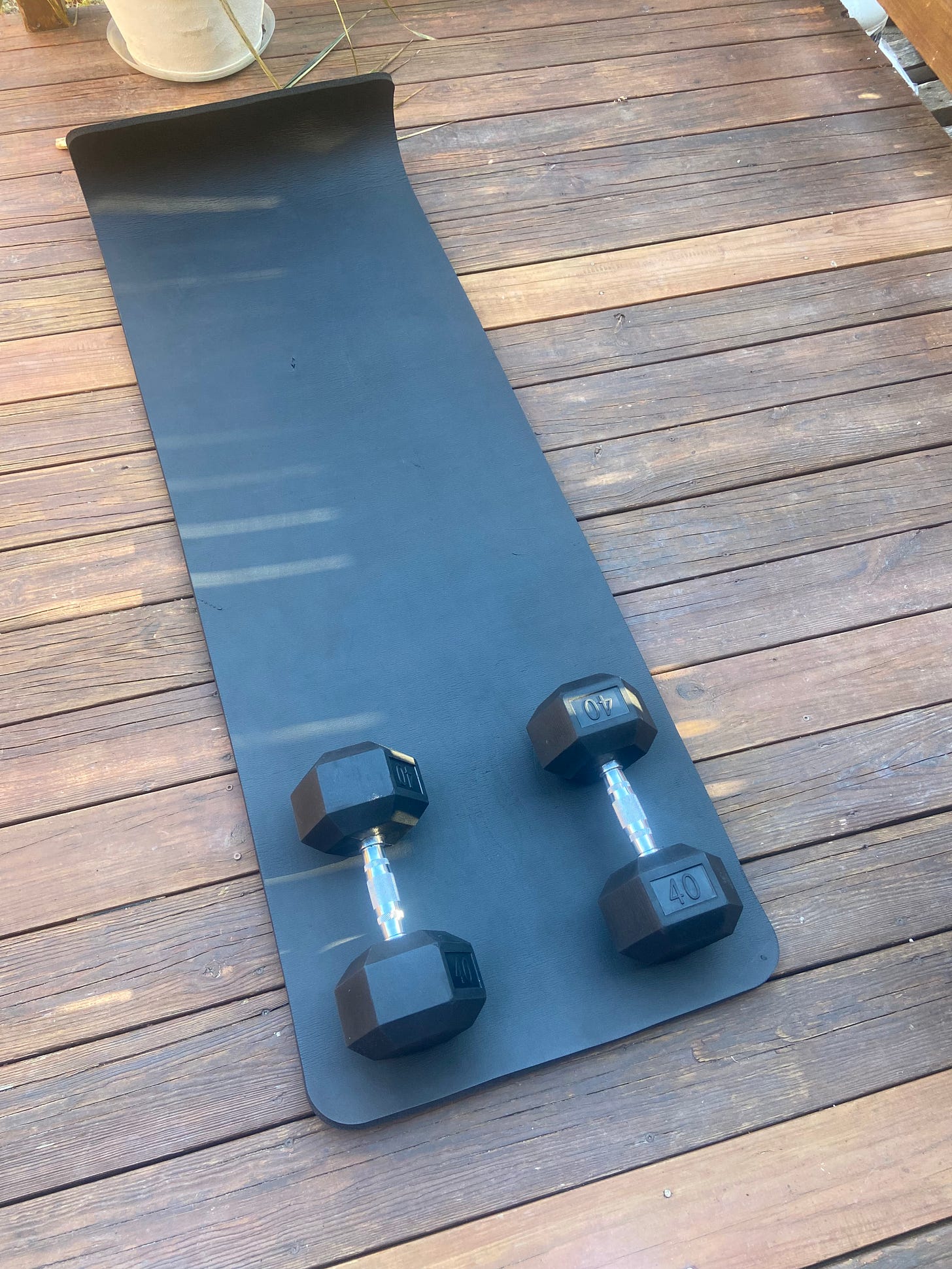Building resistance and living a joyful life
Plus, helping others: "Darling, I am here for you."
Hi friends,
First, Many of us are thinking about the Ukrainian people. My heart goes out to our brothers and sisters in Ukraine. We’re all in this together. May the Ukrainian people find a glimmer of hope and peace amid this difficult time.
Second, I’ve launched a separate newsletter entitled, ‘Compound Interest,’ that will cover personal finance lessons, as well as my observations in business, investing and leadership. No stock recs or market news — just bigger-picture ideas, with no ads. If you’re interested, here’s a sign-up link. Anyway, here we go with this week’s post:
Lately, I've been trying to strengthen my resistance muscles. I grew up in a town with zero distractions, minimal turbulence and very few challenges, where most of us were well off. For that, I'm grateful. But it also means there weren't tons of opportunities to face difficulty and push through it.
It’s the difficult moments that mold us, force us to adapt and help us become who we were meant to be, even though it almost never feels that way in the moment. All roads are winding, and it's the winding path that teaches us and makes us stronger. This is a truth as old as human history. “No man is more unhappy than he who never faces adversity,” Seneca wrote thousands of years ago, adding, “I judge you unfortunate because you have never lived through misfortune.” Said Marcus Aurelius: “What stands in the way becomes the way.”
Building our resistance muscles isn’t about wishing for challenging events. It’s about understanding that challenges are inevitable parts of life. Thus, they ought to be embraced with all of our mite.
In reading about resistance, I’ve learned the best thing to do is act. Begin even when you don’t really want to. It’s the starting point, the initial roadblocks, that often hold us back the most. To lower the stakes and just start on something, George Saunders, one of my favorite writers, thinks about a new project as a practice session. He just dives in. Who cares if it’s not great? His approach is worth emulating in other areas of life. Here’s Saunders:
So, in a sense, I’m having it both ways: to ease my way in, I’m conceding that this is going to be a minor story, just for fun, no big deal, likely a piece of crap, while also saying, “Hey, you never know.”
This was the mindset in which I started "Lincoln in the Bardo.” I said to myself, “This probably won’t work, but I hereby grant you, George, a six-month trial period. Go ahead and waste those six months. No pressure. It’s just for fun.”
In this newsletter a few months ago, we mentioned the strategy some deploy in viewing everything as a trial. The mindset goes, “I just wanna see if...” I love it. “I just wanna see if I can get promoted. I just wanna see if I can work out every day and get in better shape. I just wanna see if I can learn to play the piano in 2022.” And so on. This helps lower the stakes, get started and break through the initial resistance.
To strengthen resistance muscles, I’m also practicing:
Just starting on a work or personal task even when I think I can just do it another day
Writing when I’m not in the mood
Waking up earlier (still need to work on this)
Exercising when not feeling it
Approaching new things like we did as a kid trying to learn how to ride a bike
Remembering it’s process, not result: “My paintings are but the ashes of my art.” — Yves Klein
Reminding myself that we can view everything as practice — everything becomes an opportunity to practice improving at XYZ
“The journey of a thousand miles begins with one step.” — Lao Tzu
What I learned or found interesting this week:
Sometimes, it’s best not to give a f---. Three-time Olympic gold medalist Shaun White didn't come home with a medal in his final Olympics, but I saw something he said about his routine before he drops into a halfpipe. It’s all about lowering the stakes, easing the self-inflicted pressure and anxiety. The most important part of the routine, White said, is the last thing he says to himself before he takes off. “I say, ‘who cares?’ At the end of the day, who cares? What’s the big deal? I’m here, I’m going to try my best, and who cares? I’m going to go on from this regardless of what happens. Even though my whole world is wrapped up in this, who cares?” (H/T Billy Oppenheimer)
Comedian Ricky Gervais on finding Zen, via WSJ: “I learned that everyone’s grieving. It’s at the forefront of my mind now, that you never know what other people are going through….There’s this great thing that [philosopher, author and podcast host] Sam Harris says: The next time someone cuts you off on the freeway and you’re really angry, you’ll both be dead soon. Why waste this moment being angry? I suppose I’m trying to be a bit more Zen.”
Darling, I am here for you. In an interview, the late Vietnamese monk Thich Nhat Hanh was asked by Oprah about the best way to help another person. “The most precious gift you can give to the one you love is your true presence,” he said. “So my mantra is very simple: ‘Darling, I am here for you.’” In this vein, perhaps we could reflect for a few moments on the gift of presence — when someone was there for you and it meant a lot, or when you were there for someone else. It’s worth repeating: Darling, I am here for you.
Prepare, prepare, prepare, then see what happens: The late film director Mike Nichols didn’t make a movie for the seven years after he had racked up four straight box office hits, which included two Academy Awards nominations and an Oscar for Best Director. Later, he realized, “those seven years of not making movies taught me more about making movies than the years I spent making movies.” It taught him to “relax,” he said. “Prepare the hell out of it. Prepare as much as you can. Prepare, prepare, prepare. Then show up and throw it all away. Just show up and see what happens.” (H/T Billy Oppenheimer)
Ikigai, the ancient Japanese art of finding purpose: I came across this concept, which is to 1) do what you love, 2) do what you’re good at 3) do what the world around you needs 4) do what you can be rewarded for. It doesn’t have to be something you get paid to do, just something you rewarded by doing. A concept worth contemplating.
A celebration can be uncovered when it's time to turn over a new leaf.
Here’s the brilliant Alex Elle: “When we stop holding on to the things that we're ready to let go of, it allows for reflection on the beauty and growth we've experienced along the way. Change is good, even if we don't like it. Change can make things challenging (in a good way), it holds us accountable, and requires our full attention and presence. It's not supposed to be comfortable every time we're ready to let go and move forward. There have been a lot of endings in my life, and there was a time when I couldn't come to grips with the things or people or habits I needed to part ways with. I'm getting more comfortable with letting go and making space for new horizons to lead the way. We get to change and grow and shift every day if we want—and I truly believe there's so much to learn from that.”
Our purpose might be to simply have fun, breathe and love. Yale happiness professor Laurie Santos was asked by NYT Magazine, “What’s the purpose of life?” Her response: “It’s smelling your coffee in the morning. [Laughs.] Loving your kids. Having sex and daisies and springtime. It’s all the good things in life. That’s what it is.”
One nice passage, via NYT:
Don’t wait to do good
The other day, I met for coffee with a dear friend, Deb, who introduced me to Dr. Paul Farmer and Tracy Kidder. Farmer died on Monday in Rwanda, where he had helped establish a hospital and university. NYT noted Farmer was “a physician, anthropologist and humanitarian who gained global acclaim for his work delivering high-quality health care to some of the world’s poorest people.” Soon I will read “Mountains Beyond Mountains: The Quest of Dr. Paul Farmer, a Man Who Would Cure the World,” a 2003 book by Kidder that described the extraordinary efforts he would make to care for patients, sometimes walking hours to their homes to ensure they were taking their medication. He would “hike seven hours over mountainous terrain to visit a single patient, and then fly to Europe to consult with the World Health Organization on global health policy,” according to NYT.
I did not know Dr. Farmer, but it’s evident his life mission embodies what our Inner Peace community is all about: Doing good and spreading good health. There’s a grander lesson in Dr. Farmer’s, too.
“Dr. Paul’s passing is a great loss to humanity, but a lesson to be learned to not wait to do good,” Deb wrote to me this week. Amen. Let each loss of human life be a reminder: We shall not wait to do good.
Photos of the week: Several to share this week.
A midday jog to get some fresh air, sun and hear the birds in Mercer Meadows.
When walking in Brooklyn last weekend, Ally and I passed the house where Helen Hunt’s character lived in “As Get as It Gets.” We had just watched the movie, which is about a single mother and waitress, a misanthropic author, and a gay artist forming an unlikely friendship after the artist is assaulted in a robbery.
Also last week, we visited the Metropolitan Museum of Art — wow, we’ll be back! — and I really came to appreciate Vincent van Gogh’s flower paintings. Van Gogh painted flowers throughout his career. For an artist like van Gogh, who was struggling to sell work and earn a living, money was always an issue. But painting flowers was an inexpensive endeavor for him and helped generate some income.
I enjoy working with my standing desk, which helps improve mood, productivity and activity throughout the day. (I wrote this sentence standing up.) No more long sits!
Lastly, I capitalized on the nice weather in New Jersey last week and conducted my first outdoor lift of 2022! A good sweat and fresh air calms the mind.
Quote I’m pondering: “Every adversity, every failure, every heartbreak, carries with it the seed of an equal or greater benefit” — Napoleon Hill
Be joyful and celebrate your gifts,
Matthew
Was this email forwarded to you? Sign up here.



